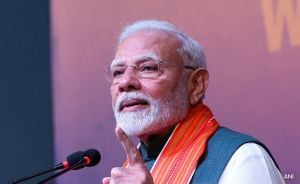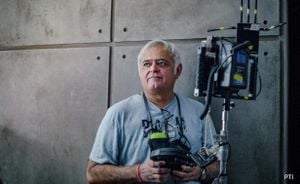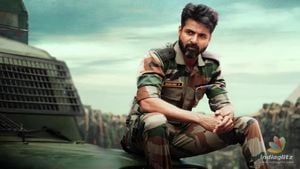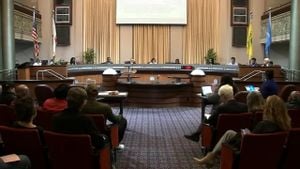HONG KONG – The courtroom was charged with tension earlier this week as Jimmy Lai, the prominent Hong Kong media tycoon and pro-democracy advocate, took the stand for the first time during his high-profile national security trial. The trial has drawn significant attention due to the heavy allegations against Lai, who faces charges related to collusion with foreign forces, marked by his long-standing criticism of the Chinese government.
Lai, 76, was arrested under Hong Kong's national security law back in August 2020, amid widespread pro-democracy protests. Since December 2020, he has been held under solitary confinement. His case has become emblematic of the clampdown on dissent following the protests against Beijing's increasing control over the semi-autonomous territory.
During his much-anticipated testimony, Lai firmly denied the prosecution's claims of collusion with foreign entities. He pointed to his interactions with U.S. diplomats and officials, which the prosecution has framed as a central component of their case. They allege these meetings were efforts to influence sanctions against Chinese officials. Lai’s defense rested heavily on the assertion he never intended to affect U.S. policy nor sought to inspire hatred against Chinese authorities.
“I would not dare to ask the vice president to do anything. I would just relay to him what happened in Hong Kong when he asked me,” Lai stated during his testimony, referencing discussions he had with former Vice President Mike Pence and Secretary of State Mike Pompeo during their visits to Hong Kong amid rising tensions.
The trial found itself intertwined with global politics, drawing condemnation from the U.S. and the U.K., who labeled the proceedings as politically motivated. These sentiments reflect the broader unease about freedom of expression and press rights under Beijing’s governance. Although Hong Kong officials argue the trial is fair, many observers believe it is another step toward quelling dissent.
The prosecution leaned heavily on labeling Lai as the mastermind of conspiratorial actions, linking him to various high-profile political figures across the globe. This included mentioning Lai's connections to Paul Wolfowitz, the former U.S. deputy defense secretary, and others. The court heard from the prosecution's argument which framed Lai as the leader of what they deemed as a syndicate attempting to undermine Chinese sovereignty. The prosecution alleged this syndicate encouraged foreign governments to impose sanctions against Hong Kong and China.
Prosecutors pointed out specific instances they claim demonstrate Lai's malfeasance, including meetings he held with foreign dignitaries during the tumultuous months of pro-democracy protests. They asserted he was actively seeking international intervention and support for his cause.
Throughout the trial, Lai has asserted his innocence, describing his work through the now-defunct Apple Daily as reflective of his commitment to Hong Kong’s core values, equated by many with free expression and press freedom. “All I said in this article was the true reflection of the facts I perceived,” Lai insisted, arguing his writings expressed genuine sentiments rather than any seditious intent. "For truth prevails in God’s kingdom, and that's good enough for me," he remarked, echoing his faith's role as his guide.
Testimonies from former associates and members of the Apple Daily staff have added varying perspectives, some corroborated, others conflicting, on Lai's alleged directions and the newspaper's editorial line. Lai has often been described as hands-off, claiming he seldom issued orders but rather trusted his team to uphold journalistic integrity.
For example, Cheung Kim-hung, the former CEO of Lai’s parent company Next Digital, testified under prosecution direction. Cheung alleged Lai directed him to engage all potential supporters for protests, contradicting Lai’s assertion of limited involvement. The complexity of these testimonies highlights the difficulty jurors face in discerning Lai's actual influence over the newspaper and his associates.
The trial’s backdrop is marked by mounting scrutiny over Hong Kong’s legal changes post the implementation of the national security law, which many believe have fundamentally altered the city’s judicial independence and civic space. Lai’s situation is not isolated but part of the wider narrative of diminishing freedoms within Hong Kong.
Given Lai’s public profile, the impact of this trial extends beyond the courtroom, shaping perceptions of China’s governance on the international stage. For many, he's not just on trial for the allegations set against him but is seen as a symbol of the fight for democratic expressions suppressed by increasing authoritarianism.
The world watches closely as the trial progresses, as its outcome could hold significant weight on discussions surrounding human rights and freedom of speech, not only in Hong Kong but for dissidents around the globe. Lai’s statement about representing the essence of city residents reflects the stakes involved – stakes not just for him, but for the ideologies of freedom and democracy at large.
Despite the heavy fog of charges circling around him, Lai remains steadfast, vowing to continue his advocacy for freedom, even if confined behind bars. His case is rapidly becoming iconic, galvanizing voices both within Hong Kong and the international community who see it as symbolic not just of Lai, but of the very essence of freedom itself.
The legal proceedings will carry on, but the story of Jimmy Lai is already written on the parchment of history, where he stands not just as a media tycoon, but as a bastion against the tides of autocracy swaying over Hong Kong.



